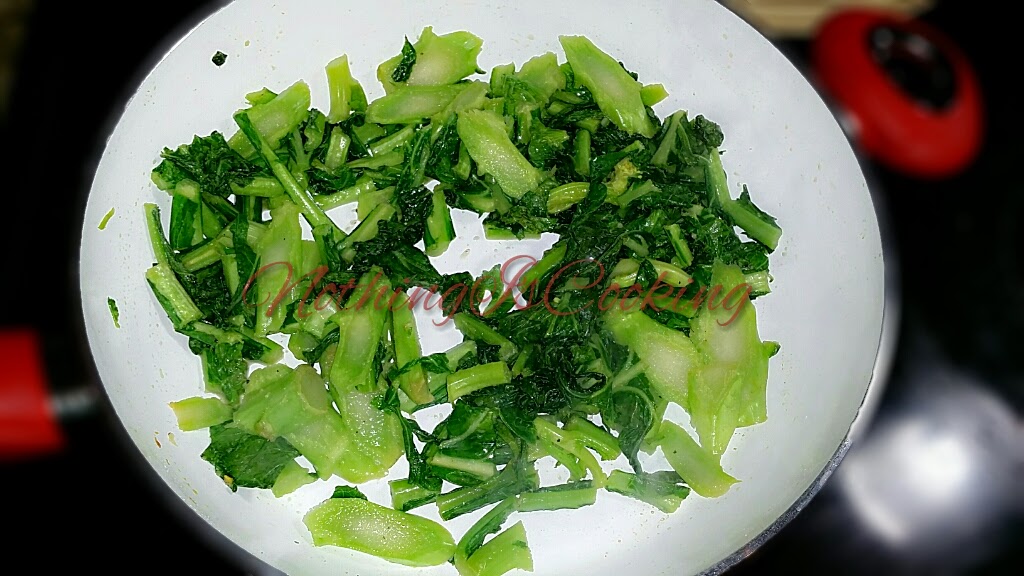Thai Steak with Collards StirFry
Health Benefits of Collards:
- The cholesterol-lowering ability of collard greens may be the greatest of all commonly eaten cruciferous vegetables. In a recent study, steamed collard greens outshined steamed kale, mustard greens, broccoli, Brussels sprouts, and cabbage in terms of its ability to bind bile acids in the digestive tract. When this bile acid binding takes place, it is easier for the bile acids to be excreted from the body. Since bile acids are made from cholesterol, the net impact of this bile acid binding is a lowering of the body's cholesterol level. It's worth noting that steamed collards show much greater bile acid binding ability than raw collards.
Eating RedMeat:
You may associate red meat with a food that is off limits. Eating red meat has been discouraged because many cuts are high in cholesterol and saturated fat. Red meat has a place in a healthy diet as long as you choose the right cuts of beef. Eye round roast and steak, round steak, sirloin tip roast and 95 percent ground meat all offer healthy options, or choose bison for lean red meat. Adding one or two servings of fresh or organic lean red meat to your weekly diet will supply your body with many vital nutrients.
Supplies Protein
A 3-oz. serving of red meat supplies about half the protein an average adult needs in a daily diet. The protein you get from red meat contains all the amino acids necessary to build muscle and repair tissue. Muscle mass is essential because it gives you the ability to be physically active, but it also produces enzymes and hormones that help prevent illness. Protein has also been linked to weight loss, since it satisfies hunger and keeps your satisfied for hours following your meal.
Provides Iron
The Institute of Medicine recommends women consume 18 mg of iron each day and men consume 8 milligrams. Lean red meat supplies a good amount of iron, depending on the cut of the meat, and contains a form of iron more easily absorbed than the iron in plant-based foods. Adding red meat to your diet one or two times a week can help you consume the amount of iron your body needs for your red blood cells to transport enough oxygen to all the other parts of your body. Iron deficiencies can contribute to learning problems, low energy and behavioral issues. A 3-oz. serving of lean ground beef supplies 2.4 mg, and a serving of lean pot roast supplies 2.6 mg.
Contains Zinc
Another benefit of adding lean red meat to your diet is that it supplies a good dose of zinc. You need zinc from foods because it helps build muscle mass, strengthens your immune system and helps promote a healthy brain. The average person needs 15 mg of zinc each day. A 3-oz. portion of lean ground beef contains 5.5 mg of zinc, and a serving of sirloin steak supplies 6.2 mg.
Provides B Vitamins
Lean red meat is a natural source of many B vitamins. Eating foods that contain naturally occurring B vitamins is important because it helps promote a healthy body. Lean red meat contains B-12 for a healthy nervous system and B-6 for a strong immune system. Red meat also contains niacin, another B vitamin that aids in digestion, as well as riboflavin for healthy skin and eyes.
Ingredients:
For Steak:
2 tablespoons red curry paste
1/2c tablespoon lime zest plus
1 tablespoon juice and wedges for serving
1 teaspoons olive oil, divided
10 Oz Top sirloin or skirt steak
Salt and pepper
For Collards :
2 Cups Collards Chopped
1/4 tsp Maggie Bullion Powder
1/4 tsp Garlic Pd
1/4 tsp Onion Pd
1/4 tsp Lemon and Pepper Powder
Salt as needed
Method:
1.In a large zip-top bag, combine curry paste, lime zest, and 1 teaspoon oil. Add steak and shake to coat. Refrigerate 1 hour (or up to overnight).
2.Heat broiler, with rack set 8 inches from heat. Transfer steak to a foil-lined rimmed baking sheet, and broil until medium-rare, 4 to 5 minutes per side. Let rest, covered, 10 minutes.
3.Meanwhile, Take a pan and add a tsp of oil and add collards and other seasoning powders and stir fry for 2 to 3 min ,collards should become greener but it should stat crisp.Serve hot.
4.Now cut steak into strips in cutting board and put in a saute pan and saute for a minute and check for salt add if necessary.Serve it along with collards.
Nutrition:
For Steak:
| Nutrition Facts | ||||||
Serving Size 334 g
| ||||||
Amount Per Serving
| ||||||
Calories
743
Calories from Fat
380
| ||||||
% Daily Value*
| ||||||
Total Fat
42.2g
65%
| ||||||
Saturated Fat
14.6g
73%
| ||||||
Cholesterol
167mg
56%
| ||||||
Sodium
1776mg
74%
| ||||||
Potassium
841mg
24%
| ||||||
Total Carbohydrates
6.5g
2%
| ||||||
Protein
75.6g
| ||||||
| ||||||
Nutrition Grade C+
| ||||||
* Based on a 2000 calorie diet
|
Nutritional Analysis
For Collards:
| Nutrition Facts | ||||||
Serving Size 366 g
| ||||||
Amount Per Serving
| ||||||
Calories
127
Calories from Fat
0
| ||||||
% Daily Value*
| ||||||
Total Fat
0.0g
0%
| ||||||
Trans Fat
0.0g
| ||||||
Cholesterol
0mg
0%
| ||||||
Sodium
338mg
14%
| ||||||
Potassium
13mg
0%
| ||||||
Total Carbohydrates
13.2g
4%
| ||||||
Dietary Fiber
8.1g
32%
| ||||||
Protein
8.2g
| ||||||
| ||||||
Nutrition Grade B-
| ||||||
* Based on a 2000 calorie diet
|
Nutritional Analysis
Good points
- No saturated fat
- No cholesterol
- Very low in sugar
- Very high in calcium
- Very high in dietary fiber
- High in iron
- Very high in vitamin A
- Very high in vitamin C
Bad points
- High in sodium













0 Comments